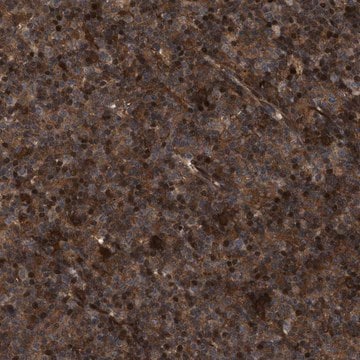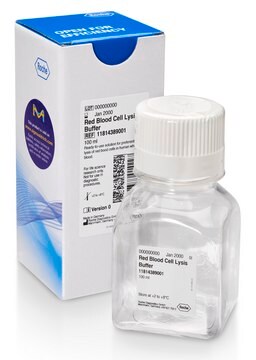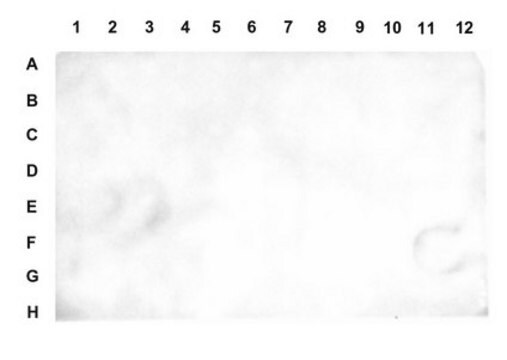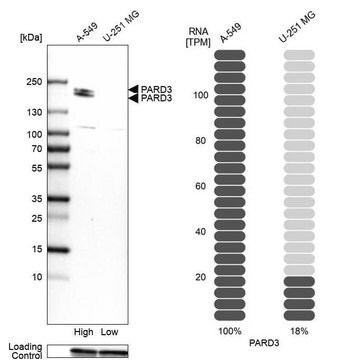07-330
Anti-Partitioning-defective 3 Antibody
Upstate®, from rabbit
Synonym(s):
Atypical PKC isotype-specific-interacting protein, CTCL tumor antigen se2-5, atypical PKC isotype-specific interacting protein, par-3 (partitioning defective 3, C.elegans) homolog, par-3 partitioning defective 3 homolog (C. elegans), partitioning-defecti
About This Item
Recommended Products
biological source
rabbit
Quality Level
antibody form
purified immunoglobulin
antibody product type
primary antibodies
clone
polyclonal
species reactivity
rat, canine, human, mouse, monkey
manufacturer/tradename
Upstate®
technique(s)
immunocytochemistry: suitable
western blot: suitable
isotype
IgG
NCBI accession no.
UniProt accession no.
shipped in
dry ice
target post-translational modification
unmodified
Gene Information
human ... PARD3(56288) , PHIP(55023)
General description
Specificity
Immunogen
Application
A previous lot of this antibody showed positive immunostaining for PAR-3 in MDCK cells fixed with 3% paraformaldehyde followed by permeabilization with 0.1% Triton X-100 has been shown by an independent laboratory.
Cell Structure
Cytoskeleton
Quality
Western Blot Analysis:
0.5-2 µg/mL of this antibody detected PAR-3 isoforms in RIPA lysates from 3T3/A31, A431, and HeLa cells.
Target description
Linkage
Physical form
Storage and Stability
Analysis Note
Positive Antigen Control: Catalog #12-305, 3T3/A31 lysate. Add 2.5 μL of 2-mercapto-ethanol/100 μL of lysate and boil for 5 minutes to reduce the preparation. Load 20 μg of reduced lysate per lane for minigels.
Other Notes
Legal Information
Disclaimer
Not finding the right product?
Try our Product Selector Tool.
recommended
Storage Class
10 - Combustible liquids
wgk_germany
WGK 1
Certificates of Analysis (COA)
Search for Certificates of Analysis (COA) by entering the products Lot/Batch Number. Lot and Batch Numbers can be found on a product’s label following the words ‘Lot’ or ‘Batch’.
Already Own This Product?
Find documentation for the products that you have recently purchased in the Document Library.
Our team of scientists has experience in all areas of research including Life Science, Material Science, Chemical Synthesis, Chromatography, Analytical and many others.
Contact Technical Service







